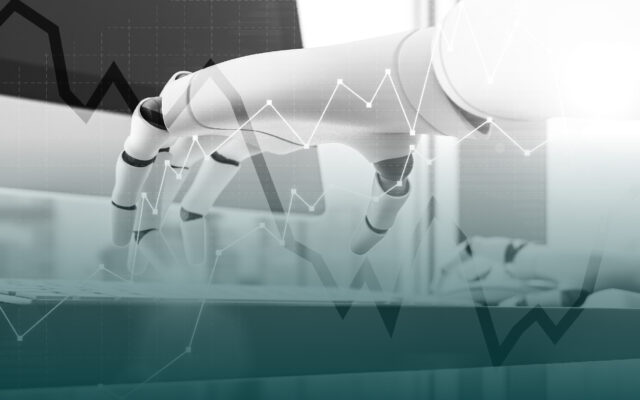According to Business Research Company, AI in sports market size was estimated to be $1,85 billion in 2023 and projected to reach $6,69 billion by 2028. Just imagine, the annual growth rate will be 28,8%. Sound impressive, right?
Finally, artificial intelligence makes the sports industry a profitable area to invest in, while also enhancing fan engagement by creating more interactive and personalized experiences for supporters.
No matter who you are: a professional athlete, fitness amateur, coach, or a sports-tech startup. Just know sports AI will transform the way you engage in sports and encourage you to change how you approach this area. So, let’s see how!
In this article, the Forbytes team is going to talk about the power of AI in sports and fitness and explain the issues and trends of AI sports.
How AI Is Applied in Sports and Fitness
You know what we’re tired of hearing recently? “AI will replace many professionals!” “Robot athletes are the next big thing in sports.” Do you genuinely believe in this? What about viewing artificial intelligence and machine learning as a revolution in the sports industry? So let’s disrupt these thoughts together and reveal the true mission of artificial intelligence in sports and fitness.
Analysis of athletes’ performance for valuable insights
Sports are not only about progress and success, it’s also about performance and endurance. But how to stay productive in sports?
In the sports industry, AI-driven data analytics is used to evaluate an athlete’s abilities. This kind of sport performance analysis makes it possible to design relevant training programs based on real evidence. Sports AI enables us to do it faster and more efficiently, so coaches and trainers don’t need to waste their time on manual data analysis, as big data in sports can offer them valuable insights.
A prominent example of artificial intelligence in sports is the use of Statcast, an AI tool in Major League Baseball. This tool was applied to monitor and assess how players move, how fast they hit the ball, the angle at which they launch it, and how they pitch. This app gives coaches and players detailed data used to improve their performance and guarantee injury prevention. Statcast shows how AI systems can transform raw sports data into actionable insights, helping teams get data driven insights and make smarter decisions on and off the field.
AI-powered coaching for a better training experience
Sports coaching is one of the applications of sports AI and machine learning, which is vital for athletes’ progress and success. Coaches teach, instruct, support, and help. That’s why they must use new approaches to training programs to ensure brilliant results.
AI-powered coaching is a game-changing and advanced method, transforming the way athletes engage in training. It offers tailored workout programs based on a person’s objectives, level, and progress. As a result, a sports AI training system guarantees the most effective training experience with monitoring and injury prevention.
For instance, professional athletes and fitness amateurs can try the AI home gym, Tonal, with digital weights and customized workouts. The system adjusts a user’s program to their performance, optimizing the training experience. This home gym can be a good assistant for any coach who cares about continued training and maximum results. Tonal demonstrates how AI systems personalize fitness routines, making training more adaptive and effective for each individual.
Injury prevention and rehabilitation for mitigating health risks
According to the National Safety Council, during 2021-2022, sports and recreational injuries increased by 32%. The most traumatic sports are hockey, soccer, football, and basketball. But do you know that with sports AI, it’s possible to prevent injuries?
Artificial intelligence in sports is a helpful assistant for athletes. It prevents injuries by pinpointing risk factors and recommending how to mitigate them. As an AI system monitors such factors as force production, muscle activation, and joint angles, it can identify problematic movements. Then it also provides personalized feedback for athletes to correct emerging issues.
When it comes to injury rehabilitation, sports AI also does a good job. It can design a personalized rehabilitation program and monitor recovery progress. So, athletes receive real-time feedback and support while staying in rehabilitation.
For example, such an AI-driven wearable device as the SWORD Digital Therapist can track athletes’ movements and give feedback on their changes. As a result, this is a good way to monitor the recovery process. Beyond athlete recovery, AI technologies like these also inspire new forms of fan engagement, as supporters can follow performance insights and feel closer to the game.
Sports broadcasting and fan engagement for a fun experience
Artificial intelligence in sports also influences the way we view and interact with it. What does it mean? AI is transforming and enriching the spectator experience. It provides fans with a distinctive way to watch their favorite sports.
AI technologies have been integrated into sports broadcasting, offering new approaches to interacting with the audience. Sports AI and machine learning allow broadcasters to identify key game moments and generate highlight reels. As a result, this is a good way to communicate with fans and keep them informed about updates.
The use of virtual reality (VR) and augmented reality (AR) technology improves user experiences. It allows viewers to watch a favorite game from any perspective. That’s why AI in sports influences not only athletes but also broadcasters and spectators.
For example, Sportlogiq uses AI technologies to provide viewers with full game context. This helps them understand players’ behaviors, tactics, and strategies. As a result, artificial intelligence extends the scope of a game perception by a spectator. As a result, artificial intelligence extends the scope of a game perception by a spectator, enhancing fan engagement by making the viewing experience more interactive and insightful.
Technological innovations in sports equipment for tracking progress
AI in sports is also a driving force of technological advancements. It assists athletes and fitness lovers in staying disciplined and fit. AI-driven wearables, fitness trackers, and smartwatches have become helpful assistants for monitoring physical activity and sports.
The integration of AI in fitness trackers makes them smart and advanced. They can then provide personalized feedback to users. The functions of these devices vary. But the most basic includes analysis of the user’s motion and heart rate. AI tools also offer personalized training recommendations.
For instance, the WHOOP Strap is an AI-driven wearable fitness tracker. Its key function is an analysis of sleeping quality, daily strain, and recovery. But it also provides insights and recommendations. It helps users optimize their well-being and performance.
AI in sports nutrition for personalized meal suggestions
Besides having regular training and fitness, it’s also important to have healthy eating habits and a well-balanced diet. That’s why athletes and fitness enthusiasts care about their nutrition, which affects their health and performance. This is one more task that requires time and effort.
AI sports programs can streamline this task. They can study a user’s lifestyle aspects, biomarkers, and genetic makeup. Using the received data, these programs can offer personalized suggestions to sports teams about nutrition and supplements. By leveraging machine learning, these personalized training programs continuously improve their recommendations as they process more user data.
InsideTracker is an example of a nutrition app. This platform is AI-enhanced. It considers users’ genetics and lifestyle and then provides tailored nutrition advice. The value of this sports AI software is that it can detect nutritional deficiencies. It assists customers in making educated choices about their eating habits.
What Are the Main Challenges and Ethical Issues of AI in Sports?
Every medal has a reverse side. While AI in sports offers many advantages, sports analytics also brings potential challenges and ethical issues.
1. Unequal Access to Resources: Not all athletes can access AI-powered analytics and training tools. This creates disparities, as those without access may fall behind compared to athletes who can use these technologies.
2. Privacy Concerns: AI in sports relies on collecting vast amounts of personal data, not only during training but also at sports events. This raises important questions: Who can store, share, or use this data? Could it be exploited or misused?
3. Impact on Human Expertise: The value of human skills and intuition can be underestimated when AI takes a central role. Overreliance on AI may demotivate athletes and reduce confidence in their abilities, even though technologies like injury prevention tools are meant to support, not replace, their judgment and experience.
In conclusion, AI is valuable for sports organizations, but it must be used responsibly. Respect data privacy and ethics, and don’t compare AI directly with human professionals. Instead, see it as a helpful assistant for both athletes and coaches. Used wisely, AI can truly support better performance and decision-making.
Future Trends of Artificial Intelligence in Sports
Existing possibilities of sports AI are not the limit. The growth continues, and AI in sports will bring even more benefits. In the upcoming years, artificial intelligence will contribute to talent identification. It will also help with mental training. What’s these – with what it is eaten?
Sports AI can assist trainers and coaches in recognizing promising and brilliant athletes. It’s possible by examining diverse data like performance metrics and social media interactions. AI in sports can facilitate talent development and assist in reaching skilled people.
Mental training is another area where AI algorithms can assist sports organizations and their athletes. It can improve cognitive skills, such as decision-making, reaction time, and focus. Mental training is very relevant for athletes in terms of enhancing their mental performance.
The rapid growth of AI in sports will bring new trends, training programs, and more opportunities related to productivity and progress. So, the future is bright for the sports and fitness area.
Looking to Build Your Sports Software?
At Forbytes, we specialize in developing sports and nutrition software. Our apps are for public and in-house use. We build commercial mobile apps for a public audience. But we also create back-office systems for sports organizations or nutrition management businesses. If you need an advanced and smart AI-driven solution, our team is more than happy to help.
Our company offers the development of sports and fitness apps, nutrition and diet apps, coaching tools and apps, sports portals, wellness apps, membership management software, and betting apps. Plus, we can fuel your app with advanced technologies like AI and ML. This will make it faster and more tailored to your users’ needs.
One of the relatable cases here is when we provided full technical support for Gymgrossisten. This is a leading online store of sports products.
The company succeeded in the market but faced a dilemma. They didn’t know how to scale up their platform and reach more users. Plus, they didn’t have developers with the required expertise. That’s why they found us. Forbytes had the right talent to meet our client’s demands.
Our mission was to upgrade an e-commerce platform for better scalability and functionality. First, we migrated their system to a new e-commerce software platform. We also integrated the loyalty program. Second, we ensured it falls in line with the General Data Protection Regulation. Finally, we added a product recommendation system. It suggests sports products based on user behavior.
As a result, this online store became more robust and scalable and was able to meet the users’ demands better.
Final Thoughts
It’s safe to say that the future looks bright for the AI sports market and the sports and fitness industry in general. With data driven insights, AI opens new opportunities for performance enhancement in the field and a more personalized fan experience off it, benefiting not only your target audience but also the company.
Building sports and fitness software is a profitable business. And its value is increasing with every passing year. Imagine the benefits you’d deliver to your clients if you powered your sports app with AI and virtual reality technology.
While you’re thinking, we want to remind you that we can assist you. Having expertise in both AI and sports and nutrition, we can share this challenging path and offer you a brilliant product. Just get in touch with us, and we are always at your service.










